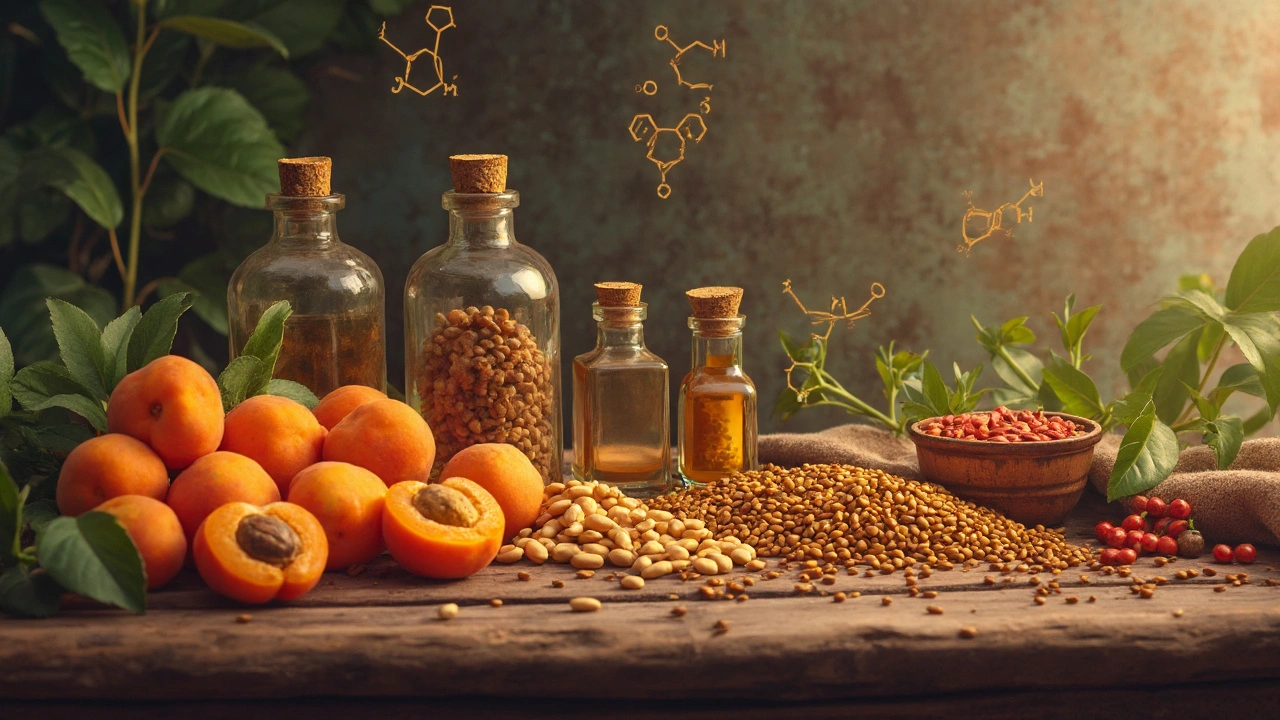You may have seen pangamic acid called "vitamin B15" on supplement labels. That name stuck from older claims, but experts don’t consider it a true vitamin. Chemically it’s often described as a compound made from gluconic acid and dimethylglycine (sometimes called pangamate). People try it for energy, oxygen use, or liver support, but the story is messy.
Researchers in the mid-1900s, especially in the Soviet Union, reported benefits in animals and small human trials. Those early reports suggested improved oxygen use, endurance, and liver protection. Since then, modern clinical evidence has been limited and mixed. High-quality randomized trials are rare, so medical authorities don’t accept pangamic acid as proven for any specific condition.
If you’re weighing the claims, ask this: are results from old or small studies enough to risk trying a supplement whose long-term safety isn’t well studied? For many people the answer is no, unless advised by a clinician who’s monitoring them closely.
Safety is the big concern. Pangamic products vary a lot in purity and labeling. Some formulations on the market have been found to contain different compounds than advertised. That raises two risks: you may not get what you expect, and unknown contaminants can cause harm. Reported side effects in available literature include stomach upset and allergic reactions, but the full risk profile isn’t clear.
There’s no universally accepted dosing. Supplement labels sometimes suggest doses from a few hundred milligrams up to a gram, but those numbers are based on old practices rather than modern safety studies. If you decide to try it, start low and talk with your healthcare provider—especially if you take other medicines, have liver disease, or are pregnant or breastfeeding.
When shopping, look for brands that use third-party testing and clear ingredient lists. Certifications from independent labs (like USP, NSF, or similar) and batch testing reports are helpful signs. Avoid products with vague names or missing ingredient breakdowns.
Want alternatives? If you’re chasing energy, mood, or liver support, there are better-studied options. For mood or sleep, L-tryptophan has clearer evidence. For natural respiratory support, herbal extracts like English ivy show more consistent research for specific uses. Talk to a clinician about proven options before switching.
Bottom line: pangamic acid has an interesting history and some early positive reports, but modern proof and safety data are weak. If you’re curious, get honest testing information from the brand and check with your healthcare provider before trying it.

Discover how Pangamic Acid supplementation can unlock your body's full potential by improving energy levels and supporting healthy metabolism. Learn what Pangamic Acid is and its origins, as well as its potential health benefits, from enhancing oxygen utilization to acting as an antioxidant. This article offers practical tips on how to incorporate Pangamic Acid supplements into your daily routine safely and effectively. Whether you're an athlete looking to boost performance or just aiming for better health, Pangamic Acid might be the key.
READ